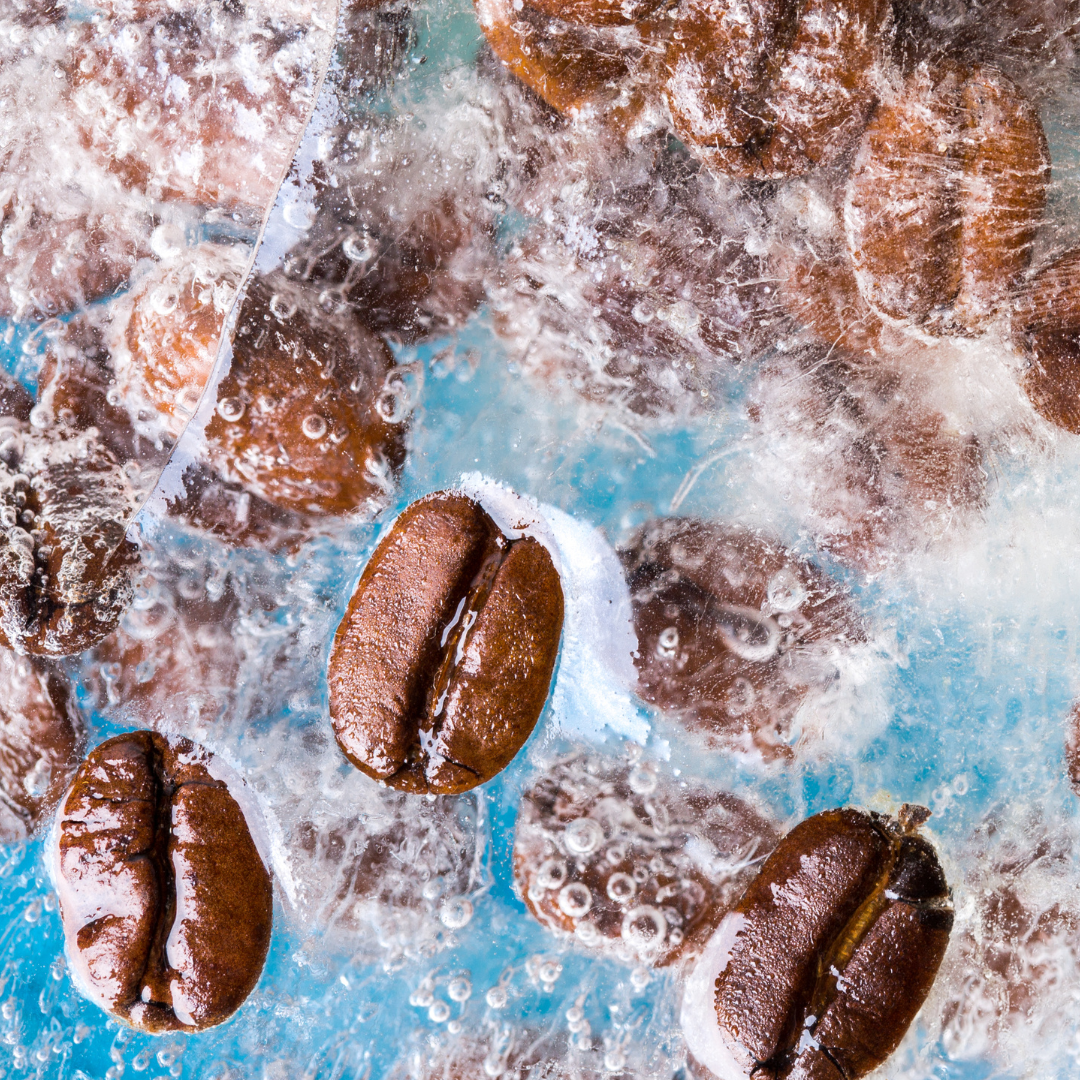Storing coffee properly is one of the easiest ways to maintain its freshness and flavour. But there’s a common debate in the coffee world: should you freeze your coffee beans? Some people swear by it, while others warn against it. So, what’s the truth?
The short answer: No, you should not freeze your coffee beans. While freezing food is a great way to preserve freshness, coffee behaves differently. Freezing can actually do more harm than good, affecting the flavour, aroma, and overall quality of your beans. Let’s break down why.
Why Freshness Matters in Coffee
Coffee is a delicate product, and freshness is key to a great-tasting cup. Once coffee beans are roasted, they begin to release carbon dioxide and interact with oxygen, moisture, and light—three things that can degrade flavour over time.
Freshly roasted beans contain hundreds of volatile aromatic compounds that give coffee its distinctive flavour and complexity. These compounds begin to break down as soon as the beans are exposed to air. That’s why proper storage is crucial if you want to enjoy coffee at its best.
What Happens When You Freeze Coffee Beans?
At first, freezing might seem like a logical way to preserve coffee. After all, freezing slows down chemical reactions in food, so why wouldn’t it work for coffee? The problem lies in moisture, condensation, and cell structure damage.
1. Coffee Beans Absorb Moisture from the Freezer
Coffee beans are porous, which means they absorb odours and moisture from their surroundings. Freezers are full of moisture, and every time you open the freezer door, small temperature fluctuations occur, leading to condensation. If your coffee beans absorb this moisture, their flavour and integrity will be compromised. Even if you store them in an airtight bag, microscopic amounts of condensation can still form when you take the beans in and out of the freezer.
2. Freezing Alters the Bean’s Structure
Coffee beans contain natural oils that are responsible for much of the flavour and aroma in your brew. When you freeze coffee, these oils become solidified, which can impact how the coffee extracts when you brew it. Grinding frozen beans can also cause uneven particle sizes, leading to inconsistent brewing and unpredictable flavours.
3. Fluctuations in Temperature Create Stale Beans Faster
If you take beans in and out of the freezer regularly, condensation can develop, introducing moisture to the beans. This accelerates oxidation—the process that makes coffee go stale. Instead of preserving freshness, you’re actually shortening the shelf life of your beans.
When Is Freezing Coffee Acceptable?
There are only a few rare cases where freezing coffee might be useful. If you have a large quantity of high-quality coffee that you won’t be using for months, freezing small, vacuum-sealed portions might help extend its life. The key here is to freeze coffee in an airtight, moisture-proof bag and only take out as much as you need at a time. Once coffee beans have been thawed, they should never be refrozen.
The Best Way to Store Coffee Beans for Freshness
Instead of freezing your coffee, here’s how to store it properly to maintain its flavour:
- Keep it in an airtight container: Oxygen is one of coffee’s biggest enemies. Store your beans in a vacuum-sealed or airtight container to minimise exposure to air.
- Store it in a cool, dark place: Avoid storing coffee near heat, light, or humidity. A pantry or cupboard away from the stove and sunlight is ideal.
- Buy in small amounts: Coffee is at its best within two to four weeks of roasting. Instead of stocking up, buy smaller quantities more frequently to enjoy the freshest beans possible.
- Grind just before brewing: Whole beans stay fresh much longer than pre-ground coffee. Invest in a burr grinder and grind your coffee as needed for the best flavour.
Final Verdict: Keep Your Coffee Out of the Freezer
While freezing works for many foods, coffee beans are not one of them. The risks of moisture, condensation, and structural damage outweigh any potential benefits. If you want to enjoy the full complexity and richness of your coffee, store it in an airtight container, in a cool, dark place, and grind it fresh.
Great coffee starts with great beans, but how you store them makes all the difference. Keep them fresh, treat them well, and you’ll taste the difference in every cup.


0 comments